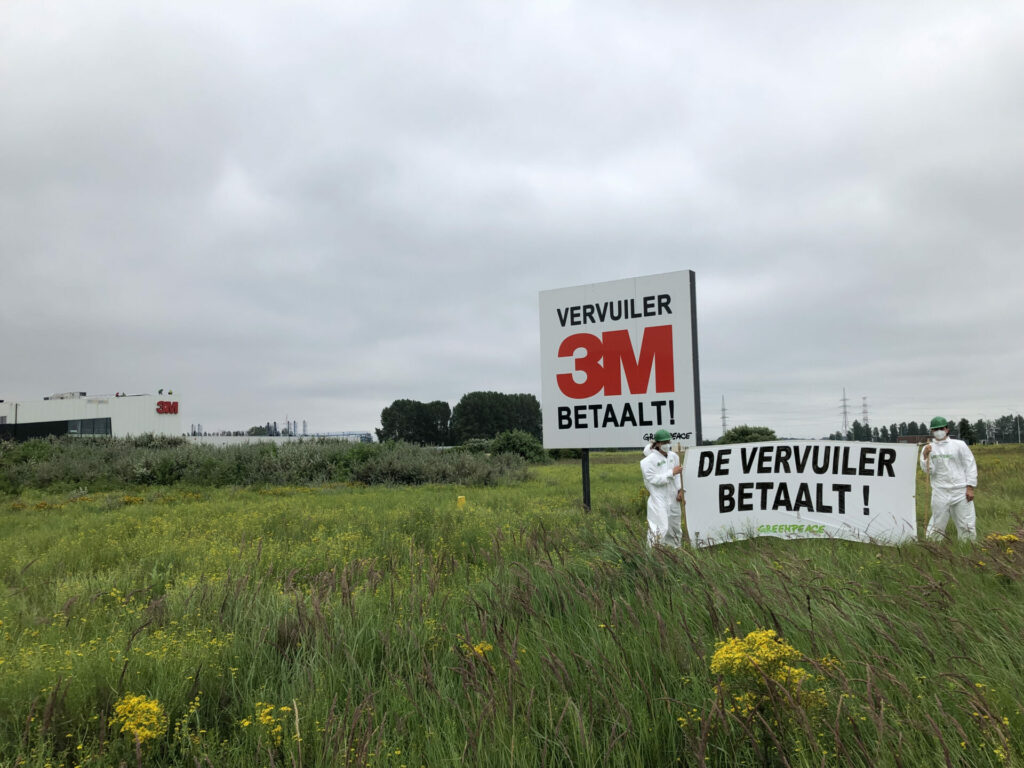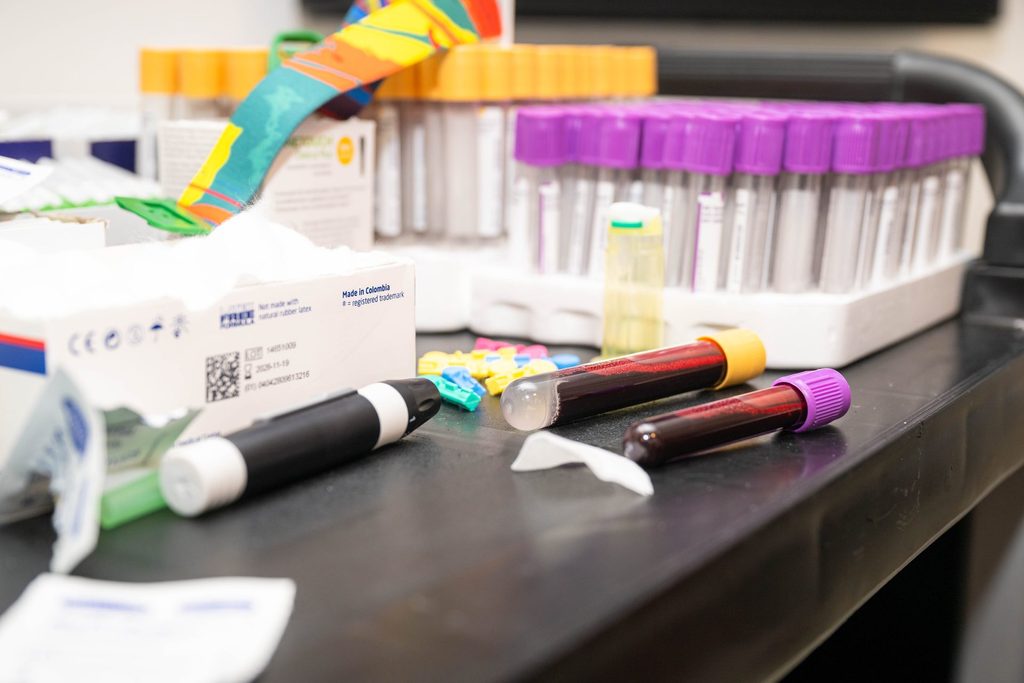Antwerp is not the only place where blood tests have shown high levels of PFAS in residents' blood; research by climate organisation Climaxi has now recorded concerning levels across five municipalities in Flanders.
Climaxi, with the help of local action committees and doctors, took blood samples from 140 people across five sites with a history of PFAS contamination. PFAS is a group of chemical substances used to make numerous products that resist grease, oil and water, but can be carcinogenic and affect the immune system and thyroid.
The blood samples were taken from 140 people near Ostend airport (39), a landfill in Kortemark (20), an incinerator in Stabroek (14), a landfill in Kruisem (43) and pollution from the textile industry in Ronse (15). Three-quarters of them showed PFAS levels in their blood that pose a health risk, meaning that the values are higher than the health limit of 6.9 micrograms per litre set by the EU.
In 11 of them, the values even rose above 100 micrograms per litre. "This is worrying, because from 100 micrograms per litre, there can be real effects on the immune system," toxicology professor Jacob de Boer (Vrije Universiteit Amsterdam), who co-analysed the results, told De Standaard. "That is the side effect of PFAS that scientists are most concerned about."
120 times the European standard
Even higher levels of PFAS in the blood can interfere with pregnancy, increase cholesterol, speed up or slow down thyroid function and even cause kidney and testicular cancer. People living near industries or landfills with a lot of PFAS pollution tend to have the highest levels in their blood, especially if they also eat eggs and vegetables from their own gardens or use well water to drink or cook.
In Ostend, Kortemark and Stabroek, the median value is around or slightly above the norm of 6.9 micrograms of PFAS per litre of blood. In Ostend, where the contamination is believed to come from fire drills at the airport, there are worrying outliers.
"In Kruisem, the median is 17, which is twice the norm. And there are two incredibly high outliers, as high as 823 micrograms of PFAS per litre of blood (120 times the European standard)." The biggest problem is in Ronse, De Boer said. "There is a lot going on there. The median there is 76 – or more than 10 times the norm. That is really worryingly high. It is not even that different from Zwijndrecht, where a factory manufactured PFAS."
In summary, only 31 of the 140 blood samples showed PFAS values below the norm; 11 samples have values higher than 100, six of them in Ronse.

Greenpeace Belgium action near the 3M site, holding signs reading "the polluter must pay." Credit: Belga
On top of those 140 samples, eight more people working in two textile mills (Associated Beavers and Utexbel) in Ronse were also tested; seven of them showed excessive levels in their blood.
This is the first time that groups of people outside Antwerp have also been tested for PFAS levels in their blood. Currently, the Flemish government is only organising such a large-scale blood test in the area around the 3M plant in Zwijndrecht.
Getting tested individually at the doctor's office is possible, but costs between €60 and €200. Therefore, Climaxi is demanding that the Flemish Agency for Care and Health extend that test to all other no-regret zones (in which local residents are advised not to eat food from their own gardens or animals to try and limit exposure to PFAS).
The climate organisation wants such screenings to be free of charge. It also demands that the government better communicates no-regret measures and speeds up the clean-up of contaminated sites.
Related News
- 'Not dangerous, but worrying': Remarkably high PFAS concentrations in Belgian sea air
- 'Social responsibility': Action needed to stop spread of PFAS
- Over 1,500 Flemish families believed to live on PFAS contaminated land
For Flemish Environment Minister Zuhal Demir, there is no need for additional action at the moment as a PFAS action plan for the whole of Flanders (including Ronse) is already in place.
"The plan involves an inventory, soil surveys and prioritisation of which sites should be tackled first," spokesperson Andy Pieters told De Standaard. "The action plan was only updated four weeks ago, so there is no need to update it now because, according to Climaxi, it is not going fast enough."
Filip De Bodt of Climaxi told De Morgen that it was already known that PFAS was widely spread in Flanders, but that outliers of 300 to 800 microgrammes per litre in the blood are very alarming. "Especially if we compare the results with the slowness of some governments to act. This is subsidised poisoning of the population."

